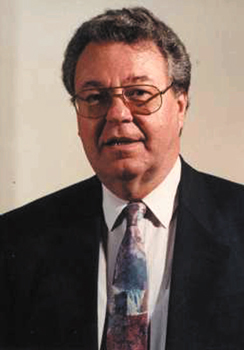At its December meeting, CERN’s governing Council decided on new measures to react to the increased costs that emerged last year for its future Large Hadron Collider.
The collider (LHC), which is being constructed in the 27 km tunnel that was built in the 1980s for the LEP collider, will be packed with high-technology equipment and, in particular, will need 1232 superconducting dipole magnets to control its high-energy proton beams. Approval of the contract for these magnets – a final major supply item – clarified the LHC’s “cost to completion”.
CERN now has to look for ways of finding the extra money needed. A first proposal will be submitted to Council in March, and this will evolve into a medium- and long-term plan, which will be presented in June.
CERN has set up five Task Forces to study scientific programmes, possible areas of saving, restructuring, and improving resource management. Karl-Heinz Kissler has been appointed as CERN programme controller.
In another major move, Council approved a proposal to establish an External Review Committee (ERC) to examine two main areas: the LHC, its experimental areas and CERN’s share of LHC detector construction; and CERN’s scientific programme not directly related to the LHC.
The ERC’s comprehensive review will be carried out in parallel with the work of the internal Task Forces. The ERC’s interim report in March will be taken into consideration for the revised medium- and long-term plans. The final report will be presented in June.

Robert Aymar of France, director of the International Project for an Experimental Thermonuclear Fusion Reactor (ITER), was appointed ERC chairman. The other members of the committee are Stephan Bieri of ETH Zurich; Bjorn Brandt of the Swedish Foundation for Strategic Research; Enrique Fernández of the Universidad Autónoma de Barcelona; Italo Mannelli of the Scuola Normale Superiore, Pisa; Sigurd Lettow of the Forschungszentrum Karlsruhe; Marc Pannier of the French Ministry of Finance, Economy and Industry; John Peoples of Fermilab; and David Saxon of Glasgow University.
On the financial front, Council took the unusual step of stipulating that 5% (SwF53 million) of CERN’s 2002 budget would initially be frozen. Council will decide how to release this money in line with the new medium- and long-term plans.
For more information see “http://www.cern.ch/info/LHCCost”.








